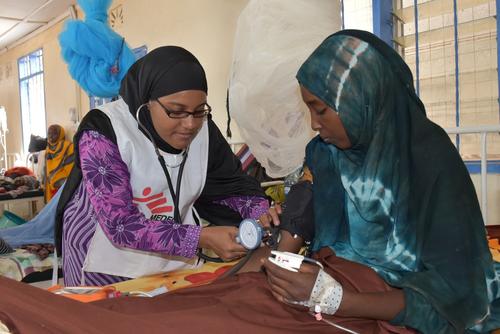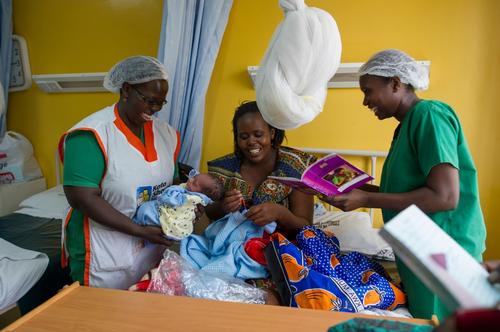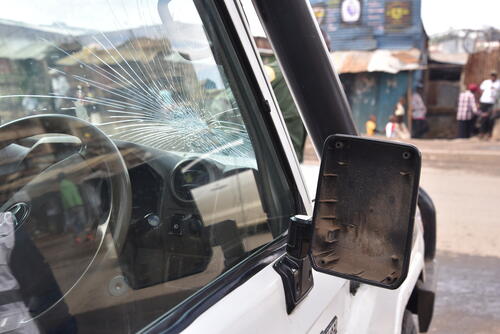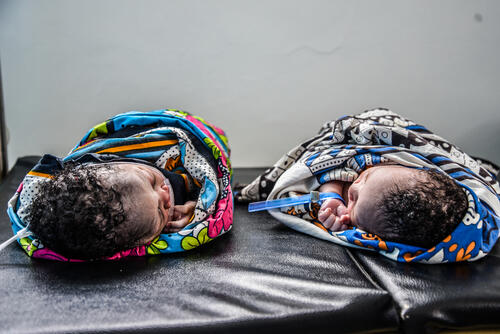Over the last two months, Kenya has been receiving heavy amounts of rainfall, causing floods, which have so far claimed the lives of over 170 people and displaced more than 300,000.
Emergency medical teams from Médecins Sans Frontières (MSF) have been responding to cholera outbreaks in Turkana and Garissa counties. In Dagahaley camp in the Dadaab refugee complex, where MSF runs a 100-bed hospital and two health posts, our teams have treated more than 250 patients with cholera in our cholera treatment centre (CTC) in the last month. Five people have died in the camp since the first case was reported on 31 March.
“We are concerned that we could see more patients come in if the heavy rains and flooding continue like this,” says Alfred Davies Jr, MSF’s Field Coordinator for Dagahaley. “We are considering expanding our treatment centre from the current 60-bed capacity in order to cater for this increased need.”
While offering treatment to patients with the disease, MSF has also deployed an outreach team in the camps, educating the refugee community on prevention and treatment of cholera, while performing contact tracing in a bid to curb its spread.
In Turkana County, where more than 700 patients have been admitted with cholera and seven reported dead since January, MSF has been airlifting supplies to the area due to the bad state of roads caused by the weather. Last Friday, MSF deployed a team to assist the county health department to respond to an upsurge of the disease in Kakuma. MSF also assisted in setting up a cholera treatment unit at the Isiolo County Referral Hospital last month to help take care of patients who present with cholera.
However, even amid this response during the floods, there is still a concern over malaria that may come as an aftermath of the rains and flooding.
“This remains one of our biggest concerns, and we have already begun training healthcare workers in Turkana County on malaria surveillance and response in case of an outbreak,” says David Croft, Head of Mission for MSF in Kenya.






